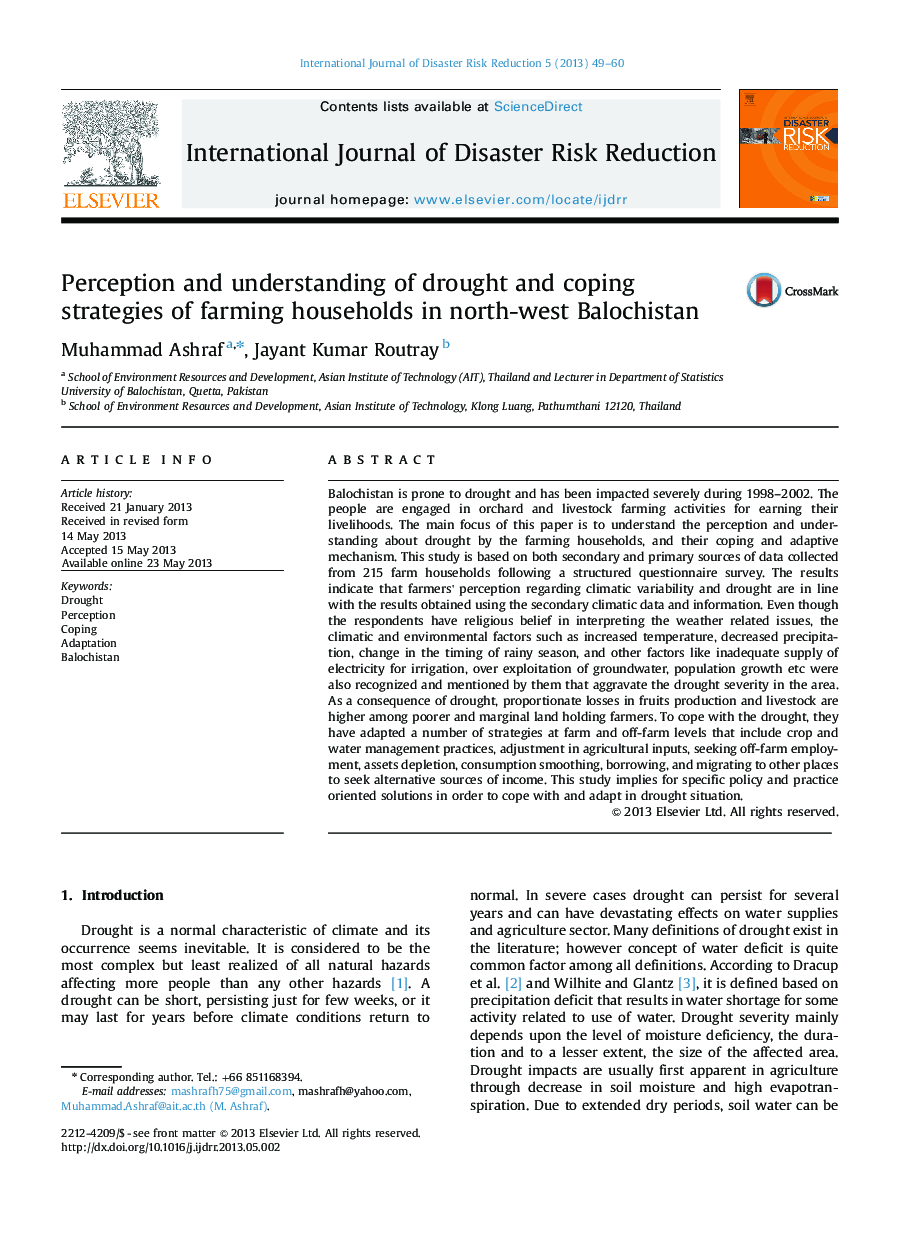| Article ID | Journal | Published Year | Pages | File Type |
|---|---|---|---|---|
| 7473858 | International Journal of Disaster Risk Reduction | 2013 | 12 Pages |
Abstract
Balochistan is prone to drought and has been impacted severely during 1998-2002. The people are engaged in orchard and livestock farming activities for earning their livelihoods. The main focus of this paper is to understand the perception and understanding about drought by the farming households, and their coping and adaptive mechanism. This study is based on both secondary and primary sources of data collected from 215 farm households following a structured questionnaire survey. The results indicate that farmers' perception regarding climatic variability and drought are in line with the results obtained using the secondary climatic data and information. Even though the respondents have religious belief in interpreting the weather related issues, the climatic and environmental factors such as increased temperature, decreased precipitation, change in the timing of rainy season, and other factors like inadequate supply of electricity for irrigation, over exploitation of groundwater, population growth etc were also recognized and mentioned by them that aggravate the drought severity in the area. As a consequence of drought, proportionate losses in fruits production and livestock are higher among poorer and marginal land holding farmers. To cope with the drought, they have adapted a number of strategies at farm and off-farm levels that include crop and water management practices, adjustment in agricultural inputs, seeking off-farm employment, assets depletion, consumption smoothing, borrowing, and migrating to other places to seek alternative sources of income. This study implies for specific policy and practice oriented solutions in order to cope with and adapt in drought situation.
Related Topics
Physical Sciences and Engineering
Earth and Planetary Sciences
Geophysics
Authors
Muhammad Ashraf, Jayant Kumar Routray,
